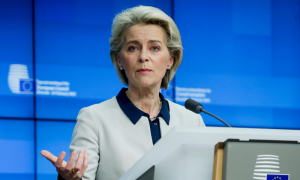PCJCCI urges Pakistani government to initiate low-cost energy generation projects in collaboration with China

Lahore: Pakistan China Joint Chamber of Commerce and Industry (PCJCCI) has urged the Pakistani federal government to initiate low-cost energy generation projects in collaboration with China to reduce cost of doing business in the country.
PCJCCI President Moazzam Ghurki stated this in a think-thank session here at PCJCCI Secretariat.
The joint chamber’s Senior Vice President Fang Yulong, Vice President Hamza Khalid, Secretary General Salahuddin Hanif and a number of executive committee members attended the session.
Moazzam Ghurki mentioned that low-priced energy was produced in China through incineration of waste materials. This model could prove to be a solution to energy crisis and environment pollution in Pakistan, he added.
Ghurki stressed that many Chinese companies were willing to invest in Municipal Solid Waste (MSW) incineration for power generation.
He informed that in Pakistan about 3,000 MW electricity could be generated using agricultural residue and municipal solid waste.
He highlighted that Pakistan generates about 15 million tonnes of crops residue annually, which could be used as feedstock to generate 120 MW of electricity.
On the occasion, Fang Yulong urged the Pakistani government to adopt waste-to-energy incineration model in Pakistan in partnership with Chinese expert companies.
In his comments, Hamza Khalid said that energy crisis was one of the main problems of Pakistan and “we should take measures to cope with this misery.
In renewable energy resources, bio-gas can be used to fulfill the deficit.” He contended that shortfall of fuel and electricity in Pakistan was an indication for them to decrease dependence on conventional fuel resources and find the new sustainable resources such as renewable energy means.
He underscored that Pakistan had a huge potential for renewable energy resources such as wind, solar and biomass, which would also save foreign reserves to be consumed on the high-cost energy.
Secretary General Salahuddin Hanif said that in China waste-to-energy incineration was playing a vital role in waste management and energy. Another important waste that could be converted into energy was municipal non- hazardous solid waste that was about some 60,000 tonnes on a daily basis in urban areas only and was increasing at the rate of 2.5 percent annually.
At the end, Moazzam Ghurki suggested that Pakistan should attain Chinese assistance and investment for bringing advanced waste-to-energy conversion technologies in Pakistan.





